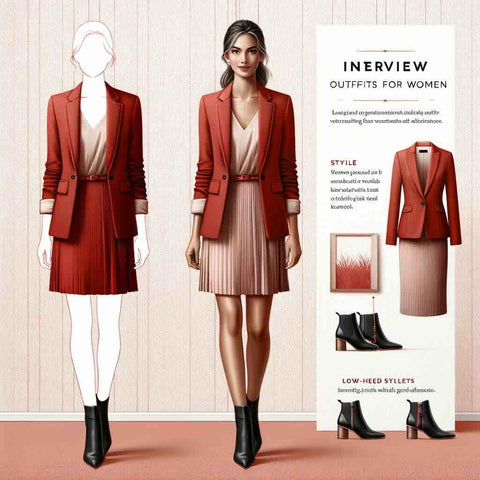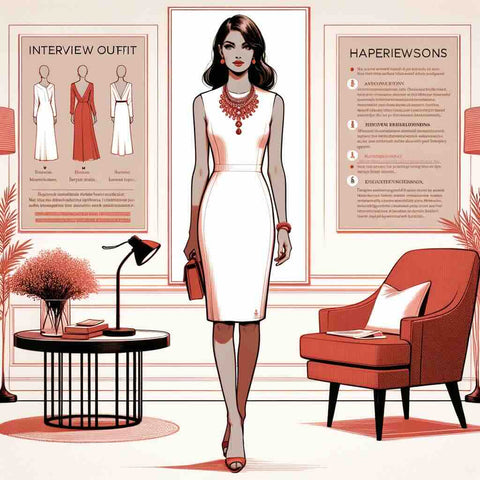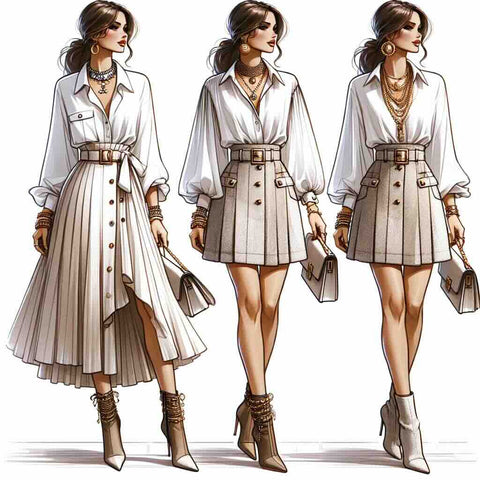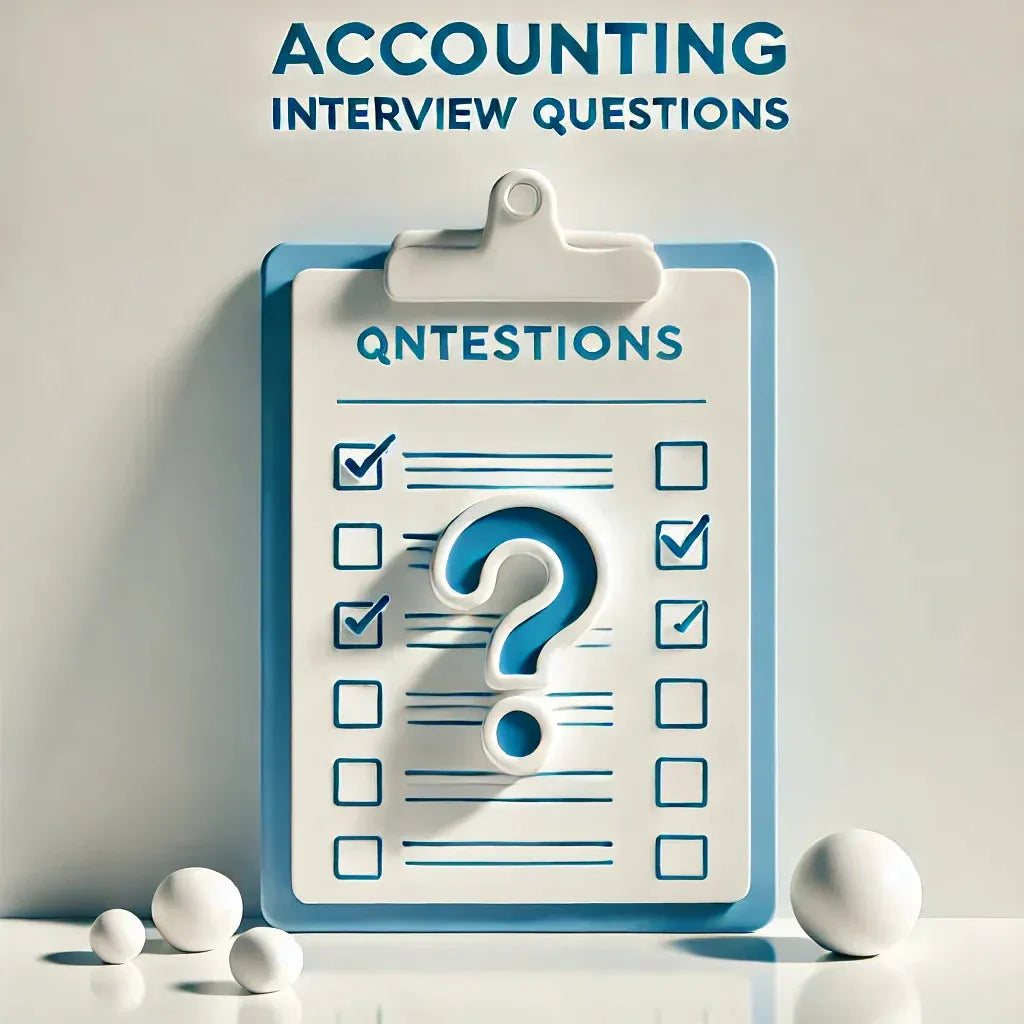Job Interview Outfits for Women: 26 Stylish ideas!
Job Interview Outfits for Women for 2026
Interview outfits for Women : Dressing for an interview in 2026 is all about blending professionalism with personal style. Whether you're attending a corporate interview, a creative meeting, or a casual tech role discussion, your outfit plays a crucial role in making a strong first impression.
From tailored blazers and dress pants to elegant sheath dresses and minimal accessories, the right attire can boost your confidence and set the tone for success. In 2026, fashion trends focus on neutral colors, timeless styles, and comfortable yet polished footwear like loafers and pumps. With these tips and outfit ideas, you’ll confidently dress for any interview.
Why the right Interview outfit for Women is critical
- Helps Get the Job: What a woman wears to an interview can influence whether she gets the job, especially for leadership roles.
- Shows Professionalism: A good outfit can make a woman seem more professional and competent.
- Deals with Workplace Biases: Proper clothing can help a woman navigate gender biases in the workplace, as some styles may be seen as more suitable for certain positions.
- Gives a Good First Impression: Wearing the right outfit is vital to making a positive first impression, showing that the candidate fits in with workplace standards.
- Affects How Skills Are Viewed: The style of an outfit can change how interviewers see a woman's management skills and overall qualifications for the job.
- Important No Matter the Situation: Even if a woman has a physical disability, how she dresses can still significantly influence an interviewer's opinion.
- Can Overcome or Confirm Stereotypes: Depending on her outfit, a woman can challenge negative stereotypes or, unfortunately, support them, affecting her chances of being hired.
Source Forsythe, S., Drake, M., & Cox, C. (1985). Influence of applicant's dress on interviewer's selection decisions.. Journal of Applied Psychology, 70, 374-378.
Job Interview Outfits for women
We cover a range of major industries and the general expectations for interview attire for women, considering the varying levels of formality and culture across sectors:
Corporate Interview attire for women

Option 1: The Executive Classic: The Look: Tailored black suit + crisp white conservative blouse + low-heeled black pumps (1-2 inches)
Why It Works:
-
- Instant Authority: Black commands respect in traditional corporate environments
- Timeless Investment: Never goes out of style across industries and decades
- Interview-Ready: Perfect for high-stakes meetings and formal presentations
- Global Standard: Universally accepted from Wall Street to international boardrooms
Option 2: The Approachable Leader: The Look: Charcoal grey pencil skirt suit + powder blue blouse + closed-toe pumps (2-3 inches)
Why It Works:
- Strategic Softness: Grey conveys competence while remaining approachable
- Trust Factor: Light blue psychologically promotes reliability and trustworthiness
- Modern Edge: Shows awareness of contemporary professional trends
- Networking Advantage: More conversation-friendly than stark black
Pro Tip: Choose quality wool blends that drape well and resist wrinkles throughout long workdays.
The light blue blouse adds a touch of approachable colour.
Explore our curated collection of corporate outfits and accessories tailored for professional women!
Accessories:
- Small pearl or stud earrings.
- A simple silver or gold pendant necklace.
- A structured leather tote in black or grey.
- A slim black belt with a metallic buckle.
Hairstyle: A low sleek bun or straightened hair tucked behind the ears will keep the look professional and cohesive.
Interview dress for Women for Technology or Startups

-
Option 1: The Smart Casual Pioneer
The Look: Tailored dark jeans or chinos + fitted blouse or quality tee + comfortable leather flats or clean sneakers
Why It Works:
- Culture Fit: Mirrors the relaxed yet ambitious tech environment
- Mobility Ready: Perfect for collaborative workspaces and standing desks
- Versatile: Transitions seamlessly from coding sessions to client pitches
- Authentic: Shows you understand startup culture while maintaining professionalism
Option 2: The Creative Professional
The Look: Knee-length dress or midi skirt + structured blazer + low-heeled ankle boots or stylish loafers
Why It Works:
- Innovation Edge: Balances creativity with business credibility
- Meeting Ready: Easily elevates for investor presentations or client calls
- Comfort Factor: Flexible for long hours and dynamic work environments
- Personal Brand: Demonstrates attention to detail valued in tech industries
Accessories:
- Minimalist stud earrings or small geometric hoops.
- A delicate silver or gold pendant necklace.
- A sleek modern watch with a leather or metallic band.
- A structured leather tote bag in black or grey.
Hairstyle:
Straightened hair styled neatly, either tucked behind the ears or left down for a polished and professional appearance.
Professional Interview Outfits for women for Creative Industries

- Option 1: Stylish yet professional dress with a unique necklace and heeled sandals.
- Rationale: Allows for personal expression through fashion while adhering to professional standards. Accessories can showcase creativity.
- Option 2: Creative blouse paired with high-waisted trousers and statement earrings, complemented by stylish flats.
- Rationale: Offers a canvas for personal style and uniqueness, which are essential in creative fields, while maintaining a polished appearance.
Browse our curated selection of professional outfits to help you ace your next interview!
Accessories:
- A unique statement necklace to add personality.
- Small stud earrings to balance the boldness of the necklace.
- A structured clutch or handbag for a polished finish.
Hairstyle: A sleek ponytail or soft waves to keep the look sophisticated yet creative.
Interview outfits for Healthcare jobs or Education roles for women

- Option 1: Tailored dress with a cardigan and comfortable, professional flats.
- Rationale: Projects approachability and practicality are important in sectors focused on care and education while ensuring the wearer remains comfortable throughout the day.
- Option 2: Separates consisting of tailored pants, a modest top, and a blazer with low-heeled shoes.
- Rationale: Provides flexibility and comfort, suitable for the diverse activities involved in healthcare or education environments, while appearing formal and respectful.
Browse our curated selection of professional outfits to help you ace your next interview!
Accessories:
- Small drop earrings or understated statement studs.
- A delicate necklace or scarf for subtle flair.
- A structured satchel or tote bag to complete the look.
Hairstyle: Straightened hair tucked behind the ears or a half-up, half-down style to strike a balance between professionalism and approachability.
Interview attire for women for Engineering or Manufacturing

- Option 1: Neatly pressed khakis with a collared shirt and comfortable loafers.
- Rationale: Strikes a balance between casual and professional, suitable for these industries' often practical and hands-on nature.
- Option 2: Simple, modest dress paired with a blazer and sensible shoes.
- Rationale: Offers a bright, casual look that is easy to move in, reflecting the practical aspects of engineering or manufacturing roles while maintaining professionalism.
Browse our curated selection of professional outfits to help you ace your next interview!
Accessories:
- Small stud earrings or a delicate chain necklace.
- A functional tote bag or satchel suits the role's practical nature.
- A slim belt to cinch the waist if the dress is loose-fitting.
Hairstyle: Soft waves or a low bun to maintain a balance of professionalism and approachability.
Professional Interview Outfits for women for law firms

- Option 1: Classic navy suit with a white blouse and conservative heels.
- Rationale: Emphasizes formality and respect for traditional and structured environments like law or government.
- Option 2: Professional dress with a blazer and low-heeled shoes.
- Rationale: It provides a slightly more feminine option while still adhering to the conservative dress codes typical of these sectors.
Discover our curated collection of polished and professional outfits for real estate interviews!
Accessories:
- Small drop earrings or understated hoops for a feminine touch.
- A simple pendant necklace or a thin scarf for subtle flair.
- A compact tote or satchel bag in a neutral tone.
- A slim belt (optional) to cinch the dress at the waist if needed.
Hairstyle:
- Soft waves or a half-up, half-down style for a balanced, professional, and approachable look.
What to wear to a retail job interview for a female

- Option 1: Tailored navy blazer over a crisp white blouse with tailored trousers and pointed-toe flats.
- Rationale: Exudes professionalism and attention to detail, which are crucial in making a solid first impression on potential clients and colleagues in the real estate industry.
- Option 2: Conservative sheath dress in a solid colour paired with a statement scarf and moderate heels.
- Rationale: Combines formality with approachability, reflecting the nature of personal interaction in real estate while allowing for a touch of personal style.
Browse our curated selection of professional outfits to help you ace your next interview!
Accessories:
- A bold yet tasteful statement scarf with complementary colors to the dress.
- Small drop earrings or a delicate necklace.
- A compact leather satchel or tote bag for a polished finish.
- A slim belt (optional) enhances the silhouette if the dress allows.
Hairstyle:
- Soft waves or a low chignon bun to balance professionalism with approachability.
Formal dresses for women interview for tourism and hotel jobs

- Option 1: Smart casual knee-length dress with a blazer and comfortable, stylish loafers.
- Rationale: It offers a polished yet approachable look suitable for the service-oriented hospitality and tourism sector, where first impressions are critical.
- Option 2: Tailored separates such as a pencil skirt and fitted blouse with a cardigan paired with ballet flats.
- Rationale: Balances professionalism with the dynamic and often fast-paced environment of hospitality, ensuring comfort during long hours.
Browse our curated selection of professional outfits to help you ace your next interview!
Accessories:
- Minimalist hoop earrings or small geometric studs.
- A thin belt is used to define the waistline, and polish is added to the separates.
- A practical yet chic crossbody bag or tote in a neutral tone.
Hairstyle:
- A low chignon bun or half-up, half-down style to balance professionalism and comfort during long hours.
Women’s corporate attire for financial sector interviews

Option 1:
Outfit: A tailored knee-length sheath dress in a neutral color (e.g., navy, charcoal, or black) paired with a structured blazer for added formality.
Shoes: Conservative heels or sleek leather flats in a matching tone.
Rationale: Project professionalism, authority, and a keen sense of structure are essential in the banking and finance.
Accessories:
- Small pearl or stud earrings for subtle elegance.
- A classic watch with a leather or metallic band.
- A structured leather tote or satchel in black or dark neutral tones.
Browse our curated selection of professional outfits to help you ace your next interview!
Hairstyle:
A sleek low bun or straightened hair neatly tucked behind the ears for a polished and formal look.
Option 2:
Outfit: Tailored separates, such as a pencil skirt and a modest blouse, paired with a fitted blazer in a coordinating color.
Shoes: Low-heeled pumps for a balance of comfort and sophistication.
Rationale: A versatile, polished look that reflects attention to detail and professionalism, which are critical traits for finance roles.
Accessories:
- Minimalist drop earrings or geometric studs.
- A slim belt to add definition to the waistline and polish the outfit.
- A compact handbag or tote in a neutral shade.
Hairstyle:
A low chignon bun or a neat ponytail to maintain formality and professionalism.
Interview Outfits for Retail Management

- Option 1: Chic separates such as high-waisted trousers and a silk blouse, accessorized with minimalist jewellery and ankle boots.
- Rationale: Projects management-level professionalism while demonstrating an understanding of current fashion trends, which is essential in the retail industry.
- Option 2: Stylish yet professional dress paired with a tailored jacket and statement accessories.
- Rationale: Balances the need for a polished appearance with the creative flair expected in fashion retail, allowing personality to shine through.
Accessories:
- Minimalist jewelry, such as geometric earrings or a delicate chain necklace.
- A structured crossbody bag or tote in a complementary shade.
- A sleek belt (optional) to enhance the waistline.
Hairstyle:
Straightened hair worn down or a neat ponytail to highlight sophistication and modernity.
Insurance interview outfits for women

Option 1:
Outfit: A classic tailored pantsuit in a neutral color such as navy, grey, or black paired with a modest blouse in a light or pastel shade.
Shoes: Low-heeled pumps or sleek leather flats for a polished and practical look.
Rationale: Projects confidence, attention to detail, and professionalism, which are vital traits in the insurance sector.
Accessories:
- Small stud earrings or understated hoops.
- A simple pendant necklace or a classic watch.
- A structured tote bag in a neutral or complementary tone.
Hairstyle:
A sleek ponytail or straightened hair neatly styled for a clean and polished appearance.
Option 2:
Outfit: A tailored pencil skirt in a dark tone paired with a modest blouse and a fitted blazer in a complementary color.
Shoes: Low-heeled shoes or comfortable flats to ensure both style and practicality.
Rationale: Combines formality with approachability, reflecting the need for customer interaction and professional acumen in insurance roles.
Accessories:
- Minimalist geometric earrings or a delicate chain necklace.
- A slim belt adds definition to the waistline and enhances the overall outfit.
- A compact handbag or satchel in a neutral shade.
Hairstyle:
A low chignon bun or a half-up, half-down style for a balance of professionalism and warmth.
Interview Outfits for Media and Entertainment

- Option 1: Tailored jumpsuit paired with a blazer and sleek, comfortable sneakers.
- Rationale: Merges professionalism with the media and entertainment industry's creative and often informal vibe, allowing for movement and versatility.
- Option 2: Fashion-forward skirt and blouse combo accessorized with bold jewellery and stylish boots.
- Rationale: It showcases personal style and creativity, essential in industries driven by innovation and trendsetting. It keeps the look professional and curated.
Interview Outfits for Chartered Accountants: Professional Attire for Women

Option:
Outfit: A tailored pantsuit in a neutral shade such as navy, charcoal, or black, paired with a crisp white or pastel blouse for a professional and clean look.
Shoes: Low-heeled pumps or leather flats in a neutral tone to balance sophistication with comfort.
Accessories:
- Minimalist stud earrings or pearl earrings for understated elegance.
- A classic watch with a leather or metallic band.
- A structured leather tote bag or briefcase in black or dark neutral tones.
Hairstyle:
A sleek low bun or straightened hair neatly styled to project a polished and professional appearance.
Summing up Interview Outfits for Women
Each industry has its unique attire expectations, but the underlying principle remains: dress in a way that reflects both your professionalism and understanding of the sector you aspire to join.
Paying attention to the nuances of interview dress codes ensures that your first impression is not just positive but memorable. Remember, the right outfit boosts your confidence and signals to potential employers your readiness and fit for the role. Dress wisely, and let your skills and professionalism take the spotlight.
1 comment
Interview Questions? Answers.
What should I wear to an interview?
It's important to dress professionally for an interview. This usually means wearing a suit or dress pants and a button-down shirt for men, and a suit or a dress for women. Avoid wearing too much perfume or cologne, and make sure your clothes are clean and well-maintained.
How early should I arrive for the interview?
It's best to arrive at least 15 minutes early for the interview. This allows you time to gather your thoughts and compose yourself before the interview begins. Arriving too early can also be disruptive, so it's best to arrive at the designated time or a few minutes early.
"What should I bring to an interview?"
It's a good idea to bring a few key items to an interview to help you prepare and make a good impression. These might include:
- A copy of your resume and any other relevant documents, such as references or writing samples.
- A portfolio or sample of your work, if applicable.
- A list of questions to ask the interviewer.
- A notebook and pen to take notes.
- Directions to the interview location and contact information for the interviewer, in case you get lost or there is a delay.
Is it okay to bring a friend or family member to the interview?
t's generally not appropriate to bring a friend or family member to an interview, unless they have been specifically invited or are necessary for accommodation purposes.
What should I do if I'm running late for an interview?"
If you are running late for an interview, it's important to let the interviewer know as soon as possible. You can try calling or emailing to let them know that you are running behind and to give an estimated arrival time.
If possible, try to give them a good reason for the delay, such as unexpected traffic or a last-minute change in your schedule. It's also a good idea to apologize for the inconvenience and to thank them for their understanding.
How should I address the interviewer?
- It's generally a good idea to address the interviewer by their professional title and last name, unless they specify otherwise. For example, you could say "Mr./Ms. Smith" or "Dr. Jones."
Is it okay to ask about the company's culture or benefits during the interview?
Yes, it's perfectly acceptable to ask about the company's culture and benefits during the interview. In fact, it's often a good idea to ask about these things to get a better sense of whether the company is a good fit for you. Just make sure to keep the focus on the interview and not get too far off track.
"What should I do if I don't know the answer to a question?"
It's okay to admit that you don't know the answer to a question. You can try to respond by saying something like: "I'm not sure about that specific answer, but I am familiar with the general topic and would be happy to do some research and get back to you with more information."
Alternatively, you can try to answer the question by using your own experiences or knowledge to provide context or a related example.
"Is it okay to ask about salary and benefits in an interview?"
It's generally best to wait until you have received a job offer before discussing salary and benefits.
If the interviewer brings up the topic, you can respond by saying something like: "I'm open to discussing salary and benefits once we have established that we are a good fit for each other. Can you tell me more about the overall compensation package for this position?"
"What should I do if I'm asked a illegal question?"
It's important to remember that employers are not allowed to ask questions that discriminate on the basis of race, religion, national origin, age, disability, sexual orientation, or other protected characteristics. If you are asked an illegal question, you can try to redirect the conversation back to your qualifications and skills for the job.
For example, you might say something like: "I'm not comfortable answering that question, but I am excited to talk more about my skills and experiences that make me a strong fit for this position."
"What should I do if I'm asked a question that I don't understand?"
It's okay to admit that you don't understand a question and to ask for clarification. You can try saying something like: "I'm sorry, I'm not sure I fully understand the question. Could you please clarify or provide some more context?"
How should I end the interview?
At the end of the interview, thank the interviewer for their time and express your interest in the position. You can also ask about the next steps in the hiring process and when you can expect to hear back. Finally, shake the interviewer's hand and make sure to follow up with a thank-you note or email after the interview.
Popular interview questions
- Mutual fund interview questions
- Best buy interview questions
- Aged care interview questions
- Interview outfits for women
- Business analyst interview questions
- Thank you email after interview
- questions to ask at end of interview
- Concentric advisors interview questions
- CA articleship interview questions
- Exit interview questions
- AML KYC interview questions
- Accounts payable interview questions
- Accounts receivable Interview Questions
- GST Interview questions
- ESG Interview questions
- IFRS interview Questions
- Financial controller interview Questions
- Mern stack Interview Questions
- Tally interview Questions
- Terraform interview Questions
- questions asked at interview for teaching assistant











very good designs! accurate and detailed
Leave a comment